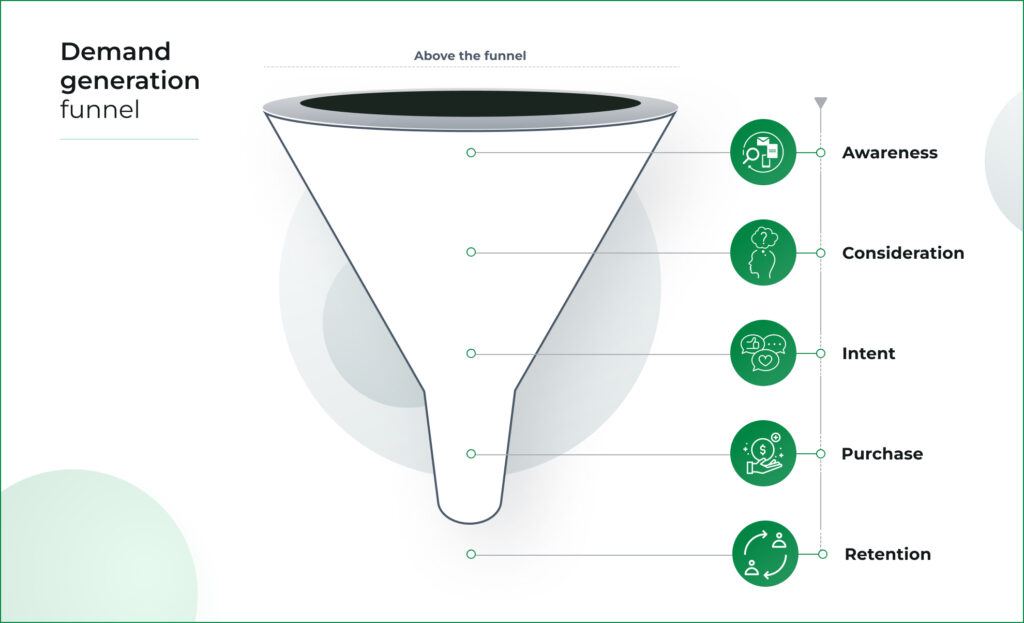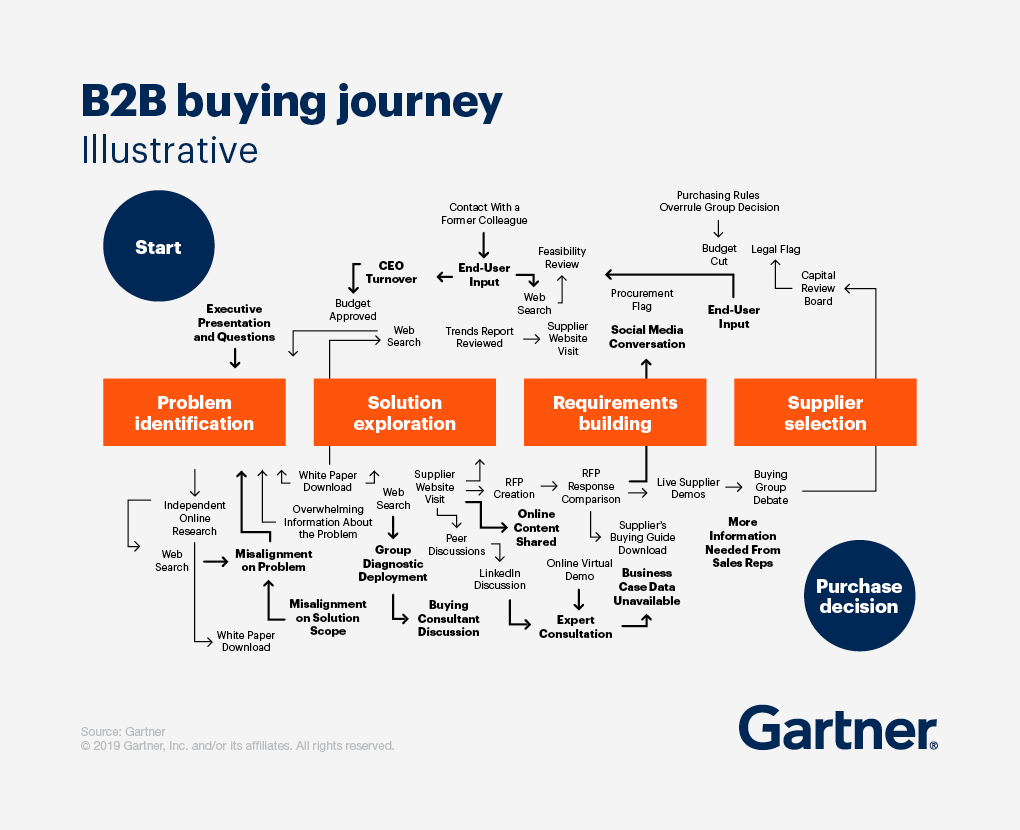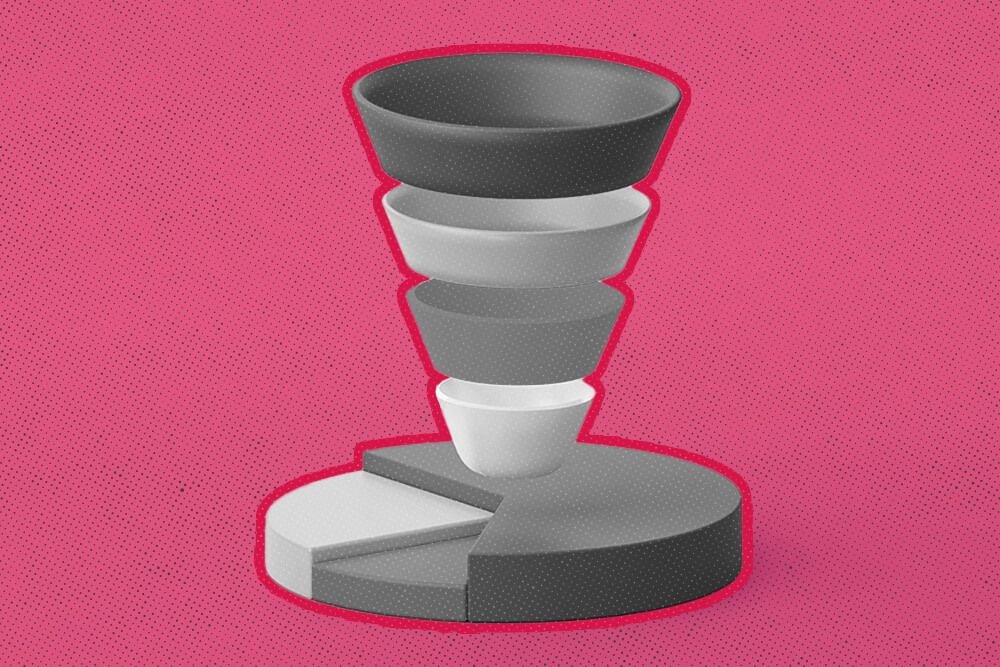A B2B demand generation funnel is a strategic process that converts prospects into loyal customers through targeted marketing efforts. By guiding prospects through awareness, interest, consideration, and decision stages, companies can nurture relationships and drive sales effectively.
This structured approach ensures that leads are qualitatively assessed and appropriately engaged at each stage, ultimately maximizing conversion rates and ROI for B2B businesses. In the competitive landscape of B2B marketing, a well-optimized demand generation funnel is crucial for attracting, engaging, and converting high-quality leads.
This systematic approach allows companies to align their marketing efforts with the buyer’s journey, delivering relevant content and experiences that drive conversions. By understanding the specific needs and pain points of their target audience, B2B organizations can create personalized and effective strategies that result in sustainable business growth. We will delve deeper into the key components and strategies for building a successful B2B demand generation funnel that generates consistent results.

Credit: getrev.ai
Importance Of B2b Demand Generation
B2B demand generation is crucial for businesses as it helps create a systematic funnel to attract and convert potential customers. With an effective demand generation strategy, businesses can drive more targeted leads, enhance their brand visibility, and ultimately increase sales.
Why B2b Demand Generation Is Crucial
In today’s competitive and fast-paced business environment, B2B demand generation plays a crucial role in the success of any organization.
By effectively implementing a B2B demand generation strategy, businesses can attract, engage, and convert high-quality leads into loyal customers. This process involves creating awareness about products and services, nurturing customer relationships, and ultimately driving revenue growth.
With B2B demand generation, businesses can proactively reach out to their target audience, ensuring their brand stands out and stays top of mind. By building trust and credibility, companies can establish themselves as industry leaders, gaining a competitive edge over their rivals.
Furthermore, B2B demand generation contributes to long-term success by creating a steady and predictable sales pipeline. This approach helps businesses maintain a constant inflow of leads, reducing dependency on sporadic marketing efforts and driving sustainable growth.
Ultimately, by prioritizing B2B demand generation, businesses can achieve their revenue goals, establish strong brand equity, and build lasting customer relationships.
Benefits Of Implementing A B2b Demand Generation Strategy
Implementing a B2B demand generation strategy offers several benefits for businesses:
- Enhanced Lead Generation: A well-executed B2B demand generation strategy enables businesses to generate a larger quantity of qualified leads consistently. By identifying target demographics and tailoring marketing efforts accordingly, businesses can attract leads with higher potential for conversion.
- Improved Brand Visibility: B2B demand generation allows businesses to increase their brand visibility and create a strong online presence. By leveraging various marketing channels such as search engine optimization (SEO), content marketing, social media, and industry collaborations, companies can boost brand awareness and attract more leads organically.
- Increased Conversion Rates: The B2B demand generation funnel helps businesses nurture leads and build relationships throughout the customer journey. By personalized and targeted communication, companies can enhance conversion rates and turn leads into customers more effectively.
- Optimized Marketing ROI: B2B demand generation provides businesses with valuable insights into the effectiveness of their marketing efforts. By tracking key performance indicators (KPIs) such as conversion rates, customer acquisition costs, and customer lifetime value, organizations can fine-tune their strategies and optimize their marketing return on investment (ROI).
- Sustainable Business Growth: With a robust B2B demand generation strategy in place, businesses can achieve sustainable growth by consistently attracting and converting high-quality leads. By focusing on building long-term relationships rather than short-term sales, companies can foster customer loyalty and enjoy a steady revenue stream.
In conclusion, B2B demand generation is of utmost importance in today’s highly competitive business landscape. By prioritizing the implementation of a B2B demand generation strategy, businesses can drive growth, establish brand authority, and build lasting customer relationships.
Key Stages Of B2b Demand Generation Funnel
Understanding the key stages of the B2B demand generation funnel is crucial for businesses striving to drive more leads and conversions. By comprehending the stages that potential customers go through in their purchasing journey, B2B marketers can tailor their strategies to effectively target and engage their audience. Let’s delve into the essential stages of the B2B demand generation funnel.
Awareness Stage
In this initial stage, businesses aim to make potential customers aware of their products or services. Prospects may encounter the brand through various channels such as social media, blogs, or search engines.
Interest Stage
During this stage, businesses strive to pique the interest of prospects who have shown initial awareness of the brand. Engaging content, compelling value propositions, and targeted advertising can help in nurturing this interest.
Consideration Stage
As prospects move into the consideration stage, they start evaluating specific products or solutions. Content such as case studies, product comparisons, and reviews can influence their decision-making process.
Intent Stage
At this stage, prospects demonstrate a clear intent to make a purchase. They may engage in actions such as requesting a demo, signing up for a free trial, or seeking personalized consultations.
Evaluation Stage
This stage involves the comprehensive evaluation of available options. Businesses need to provide detailed information, address concerns, and offer support to guide prospects through this critical stage.
Purchase Stage
Finally, in the purchase stage, prospects make the decision to proceed with a purchase. Businesses should ensure a seamless and user-friendly purchasing process, providing the necessary assurances and support to facilitate the transaction.
Effective Strategies For Each Stage
Effective Strategies for Each Stage: A successful B2B demand generation funnel requires tailored strategies at each stage to guide potential customers towards conversion.
Content Marketing In The Awareness Stage
Engage prospects with compelling content to raise brand awareness and establish credibility.
Webinars And Demos In The Interest Stage
Showcase your solutions through webinars and demos to deepen interest and educate prospects.
Case Studies And Testimonials In The Consideration Stage
Highlight success stories with case studies and testimonials to build trust and sway prospects towards a decision.
Tools And Technologies To Enhance B2b Demand Generation
Tools and Technologies to Enhance B2B Demand Generation
Enhancing B2B demand generation involves leveraging advanced tools and technologies that streamline processes and drive results. Investing in the right platforms can significantly boost your marketing efforts and improve lead generation.
Marketing Automation Platforms
Marketing automation platforms like HubSpot and Marketo help nurture leads efficiently through automated workflows, personalized messaging, and lead scoring.
Crm Systems
CRM systems such as Salesforce and Zoho CRM enable businesses to track customer interactions, manage leads effectively, and enhance customer relationships.
Predictive Analytics Tools
Predictive analytics tools such as Leadspace and Infer utilize data to forecast future trends, identify potential prospects, and optimize marketing strategies.
Measuring Success In B2b Demand Generation
The success of a B2B demand generation campaign is essential for driving revenue and growth for businesses. Measuring the success of demand generation efforts is crucial to optimize strategies and maximize ROI. By evaluating key performance metrics and studying successful case studies, businesses can refine their approach and achieve better results.
Key Metrics To Evaluate Performance
When assessing the success of a B2B demand generation funnel, specific metrics play a vital role in determining the effectiveness of the strategy. Tracking metrics such as conversion rates, cost per lead, sales-qualified leads, and customer acquisition cost provides valuable insights into the performance of the demand generation efforts. Additionally, monitoring website traffic, engagement rates, and ROI helps in understanding the impact of the campaign on overall business objectives.
Case Studies Of Successful B2b Demand Generation Campaigns
Examining real-world examples of successful B2B demand generation campaigns can offer valuable lessons and inspiration. Case studies showcasing how businesses effectively utilized targeted content, personalized marketing, and strategic lead nurturing to drive quality leads and impactful conversions provide actionable insights for optimizing demand generation funnels. Analyzing the tactics and strategies implemented in these successful campaigns can help businesses in refining their own approach and achieving similar success.

Credit: cxl.com

Credit: leadgenera.com
Frequently Asked Questions For B2b Demand Generation Funnel
What Is Demand Generation In B2b?
Demand Generation in B2B refers to the process of creating and nurturing interest in a company’s products or services. Through targeted marketing strategies, such as content creation, social media campaigns, and lead generation, businesses can generate demand and attract potential customers to drive sales and revenue growth.
What Is B2b Demand Generation 2023?
B2B demand generation in 2023 is the process of identifying and engaging potential business customers to create interest in your products or services. It involves strategic marketing and sales tactics to generate leads and drive revenue for B2B companies.
What Is Demand Generation In The Full Funnel?
Demand generation in the full funnel refers to activities that drive awareness and interest in a product or service across all stages of the buying process. It includes strategies like content marketing, social media campaigns, and email marketing to attract and nurture leads towards conversion.
What Is A Typical B2b Marketing Funnel?
A typical B2B marketing funnel includes stages like awareness, consideration, decision, and retention. It guides leads towards becoming customers through targeted strategies and engaging content.
Conclusion
Understanding the B2B demand generation funnel is crucial for driving qualified leads. By aligning your marketing and sales efforts, you can efficiently move prospects through the funnel, ultimately converting them into valuable customers. Keep optimizing your strategies to adapt to changing market dynamics and meet the evolving needs of your target audience.




